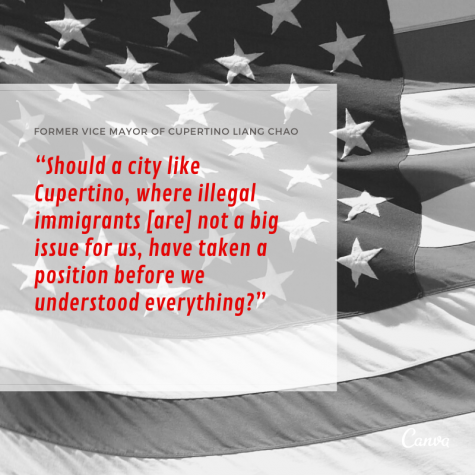Local Action
February 11, 2020
DACA is an American immigration policy enforced through an executive order by former President Barack Obama in 2015 that allowed eligible immigrant youth who were brought illegally to the U.S. as children to receive a renewable two-year period of deferred action from deportation and become eligible for a work permit in the U.S. DACA was a temporary program instituted to help eligible immigrants after Congress failed to pass the DREAM Act in December 2010, which would have provided a path to attain citizenship for immigrants brought to the country illegally as children.
Obama hoped to expand DACA in 2014 by establishing a new program, Deferred Action for Parents of Americans and Lawful Permanent Residents (DAPA) to delay deportation for parents of U.S. citizens and lawful permanent residents. However, this expansion was blocked in 2015 by a lawsuit from 26 states. In September 2017, the Trump administration announced it was terminating DACA, as Obama’s executive action of enforcing this program surpassed his legal authority, placing the citizenship and lives of 700,000 DACA recipients in legal limbo.
Due to pending litigation, the United States Citizenship and Immigration Services (USCIS) continues to accept DACA renewal applications but stopped accepting. any new DACA applications as of August 2019 due to an executive order.
In June 2019, the Supreme Court revealed that it would review the Trump administration’s decision to end the DACA policy, hear oral arguments for the case in November 2019 and reach a decision no later than June 2020. The Justices are reviewing a trio of cases that argue that the administration’s decision to terminate DACA violated the Administrative Procedure Act, a federal law governing policy-making procedures.
In an effort to urge the Court to consider DACA’s continuation, the Cupertino City Council unanimously signed on to an amicus curiae brief authored by the City of Los Angeles on Oct. 1, 2019, which was sent to the Supreme Court. An amicus curiae brief is submitted to the court when a third-party to the lawsuit wants to raise additional points of view in an attempt to influence a particular decision.
According to council member Liang Chao, who was Vice Mayor when voting on signing the brief, the council wasn’t provided any background information on DACA and the complexity of the issue before voting on whether the city should sign the brief.
“[In retrospect], I don’t think it’s something that the city should get involved in because this is a legal issue and it’s a temporary solution to a problem, but the actual solution would be for Congress to adopt something legally that can be implemented,” Chao said.
While Chao still supports the idea of protecting these working immigrants, she is doubting the city’s decision to sign the brief after discovering that the cities of San Jose, Sunnyvale, Palo Alto, Mountain View and Saratoga did not. This brief gathered the support of 109 cities and counties across the country while other big corporations, like Apple, submitted their own briefs to the Court.
“Should a city like Cupertino, where illegal immigrants [are] not a big issue for us, have taken a position before we understood everything?” Chao said. “I don’t think it’s something the city should get involved in because [DACA] is a legal issue and is a temporary solution to a problem.”
Although Chao believes that DACA recipients contribute to American society in school and at work, she also understands why people have opposed the program. For many, the program appears to unfairly reward illegal immigrants with economic and political autonomy while others are stuck waiting years to obtain permanent residency.
“I think we have to be fair,” Chao said. “There should be a path to citizenship for these children, but it needs to be a path that doesn’t penalize others who legally followed the process [of] waiting to get a legal entry to the country. [But] we don’t want to deport them to a country that they don’t even know, that’s just very cruel.”
After further research, Chao discovered more information. In 2016, the Supreme Court announced a 4-4 decision in a case challenging Obama’s expansion of DACA and the establishment of DAPA. In this lawsuit, 26 states, including Texas and Florida accused Obama of ignoring federal procedures and abusing his power by evading Congress in his decision of establishing DAPA. For Chao, the fact that four Justices believed the programs were unconstitutional made her second guess the Cupertino City Council’s decision to publicly support DACA.
“We want to follow the law, we want our representatives to follow the law, we want our president to follow the law,” Chao said. “This is a matter of principle — even a good program should follow the law. So if this is not the right way to solve the problem, find a good way that actually follows the law. There are systems in place, if you break it for one issue and it’s good now, what about another issue? It’s not fair for someone else. [DACA] was a temporary solution, it should have been replaced.”
